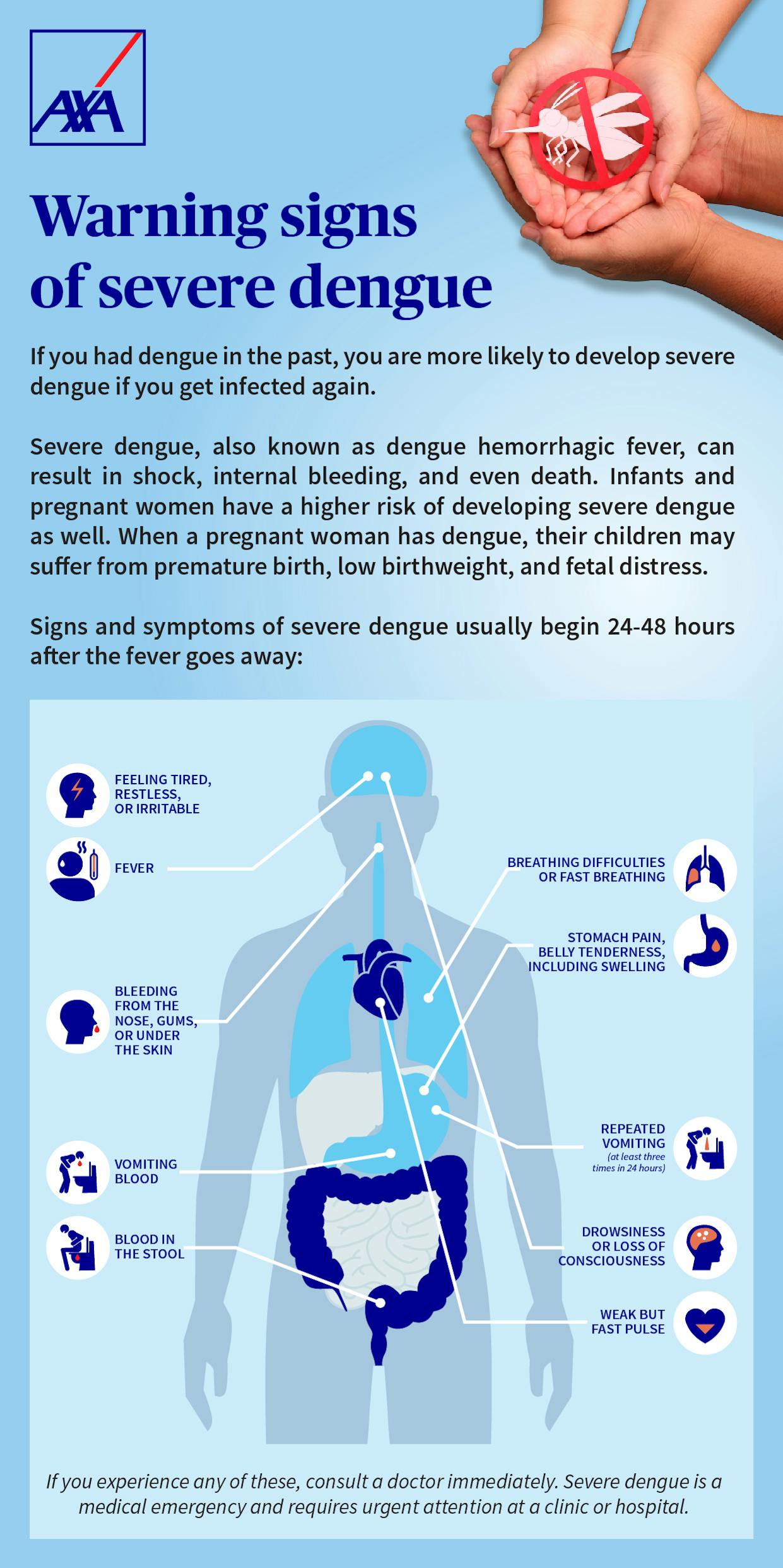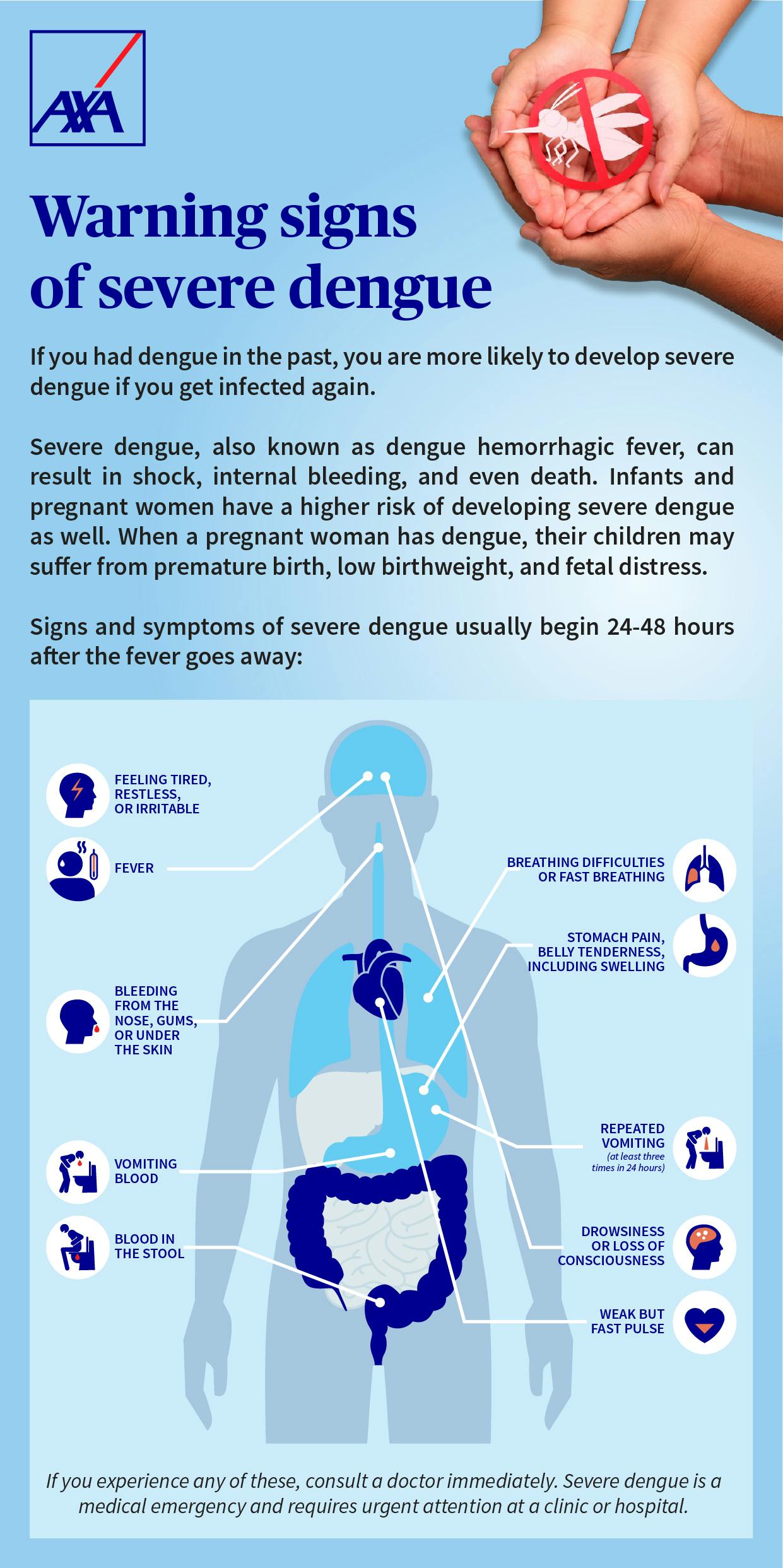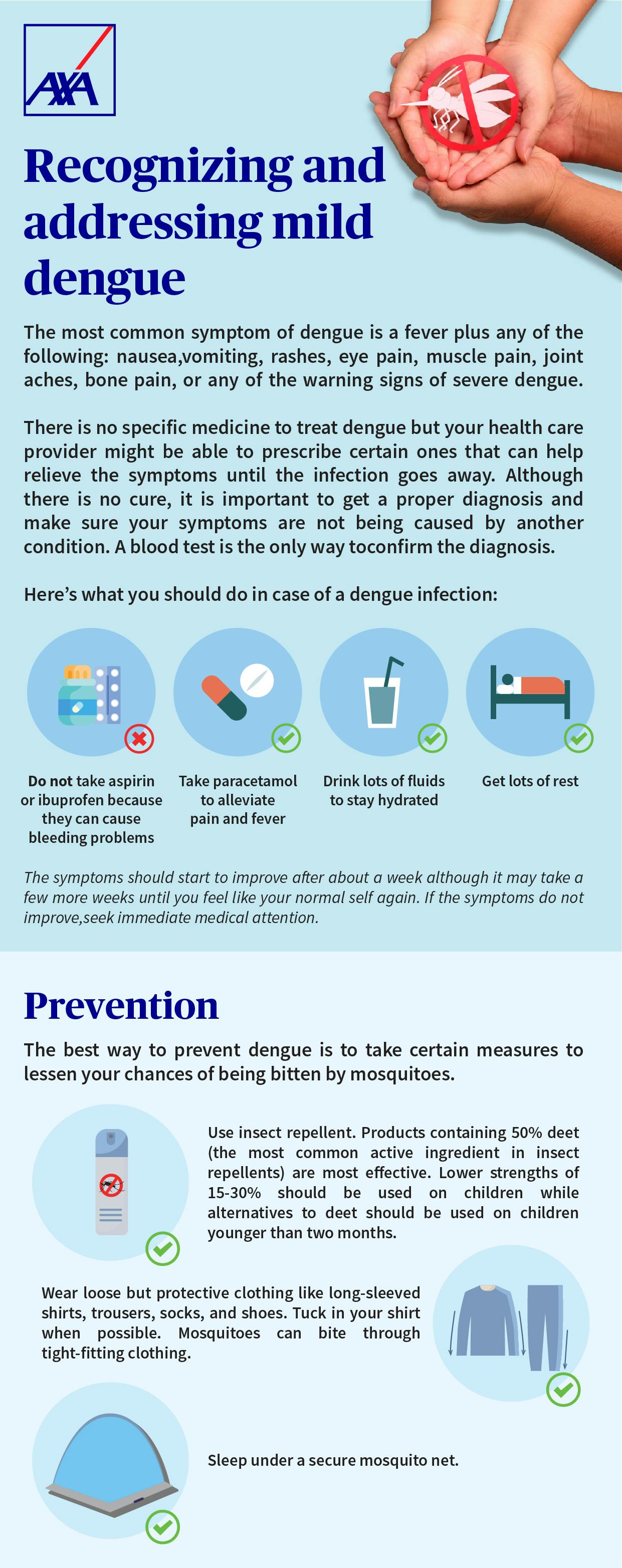TO OFFER YOU A BETTER EXPERIENCE, THIS SITE USES COOKIES, INCLUDING THOSE OF THIRD PARTIES. TO FIND OUT MORE, CONSULT THE PRIVACY POLICY
Severe dengue signs and what to do
Urban and semi-urban areas are breeding grounds for mosquitoes carrying dengue and anyone who’s in such places can be at risk of mild or severe dengue.
By Preferred Global Health
As we welcome the rainy season, we should keep in mind hazards such as dengue-carrying mosquitos.
Every year, there are over 400 million dengue infections globally in about 129 countries. Dengue cases and mortalities are influenced by fluctuations in rainfall, temperature, relative humidity, and rapid urbanization.
About 1 in 4 people infected with dengue will develop symptoms and feel sick. The virus is usually mild and passes after about a week without prolonged issues. However, in some critical cases, dengue can be lethal.
About 1 in 20 people who contract dengue will develop into a severe case. Severe dengue can become life-threatening only within a few hours so it is important to know the warning signs and seek immediate care at a hospital if this becomes the case. Early detection of disease progression in severe dengue and access to medical care lowers the fatality rate to below 1%.
In 2019, the World Health Organization (WHO) reported the highest number of dengue cases across the world. That year, the Philippines declared a national dengue epidemic with 437,563 reported cases and 1,689 deaths.
Fortunately, data from the Department of Health’s (DOH) National Aedes-borne Viral Disease Prevention and Control Program reports that infections during the first half of 2021 have declined 56% compared to 2020. From January to April 17, only 21,478 cases were reported and 80 deaths.
However, the COVID-19 pandemic has placed massive pressure on health care systems worldwide. The WHO emphasizes the importance of preventing, detecting, and treating diseases such as dengue during this crucial period as cases increase and expose urban populations most vulnerable to both dengue and COVID-19. The combined threat of these two epidemics can result in devastating consequences.
What is dengue?
Dengue is a virus spread by infected mosquitoes. The type of mosquito that spreads dengue is the Aedes aegypti and Aedes albopictus varieties, which also spread other viruses like zika, chikungunya, and yellow fever. They are small and have a dark colored body but look slightly different than normal mosquitos, due to the white shaped markings on the lower body and banded legs.
These mosquitos live near still and stagnant water where they lay their eggs. Indoors places like wet shower floors, toilet tanks, drains in shaded patios, are risky areas because they allow the mosquitoes to breed in the home. Outdoor areas like water storage tanks, wells, and old tires are frequent breeding grounds. The dengue-carrying mosquitos feed during the day, mostly biting in the early morning and the hours before sunset which is the time one should be especially vigilant and protective. They usually bite the ankles and elbows.
Strategies
There is no treatment for dengue. However, national strategies and scientific research point towards managing the burden and lethality. The decline in infections this year may be attributed to the implementation of the DOH’s enhanced 4S strategy and even to the quarantine implemented due to the COVID-19 pandemic. The 4S strategy pillars are:
- Search and destroy breeding sites
- Secure self-protection measures such as wearing long pants and long-sleeved shirts and the daily use of mosquito repellent
- Seek early consultation
- Support fogging or spraying in hotspot areas that have a registered increase in cases for two consecutive weeks to prevent an outbreak
A recently completed 3-year trial conducted in Yogyakarta City, Indonesia that manipulated mosquitoes with good bacteria that prevented them from infecting humans found a 77% reduction in dengue fever cases and an 86% reduction in people needing hospital care.


Warning signs of severe dengue
If you had dengue in the past, you are more likely to develop severe dengue if you get infected again.
Severe dengue, also known as dengue hemorrhagic fever, can result in shock, internal bleeding, and even death. Infants and pregnant women have a higher risk of developing severe dengue as well. When a pregnant woman has dengue, their children may suffer from premature birth, low birthweight, and fetal distress.
Signs and symptoms of severe dengue usually begin 24-48 hours after the fever goes away:
- Stomach pain, belly tenderness, including swelling
- Repeated vomiting (at least three times in 24 hours)
- Vomiting blood or blood in the stool
- Bleeding from the nose, gums, or under the skin
- Breathing difficulties or fast breathing
- Feeling tired, restless, or irritable
- Weak but fast pulse
- Drowsiness or loss of consciousness
If you experience any of these, consult a doctor immediately. Severe dengue is a medical emergency and requires urgent attention at a clinic or hospital.


Recognizing and addressing mild dengue
The most common symptom of dengue is a fever plus any of the following: nausea, vomiting, rashes, eye pain, muscle pain, joint aches, bone pain, or any of the warning signs of severe dengue.
There is no specific medicine to treat dengue but your health care provider might be able to prescribe certain ones that can help relieve the symptoms until the infection goes away. Although there is no cure, it is important to get a proper diagnosis and make sure your symptoms are not being caused by another condition. A blood test is the only way to confirm the diagnosis.
Here’s what you should do in case of a dengue infection:
- Take paracetamol to alleviate pain and fever
- Do not take aspirin or ibuprofen because they can cause bleeding problems
- Drink lots of fluids to stay hydrated
- Get lots of rest
The symptoms should start to improve after about a week although it may take a few more weeks until you feel like your normal self again. If the symptoms do not improve, seek immediate medical attention.
Prevention
The best way to prevent dengue is to take certain measures to lessen your chances of being bitten by mosquitoes.
- Use insect repellent. Products containing 50% deet (the most common active ingredient in insect repellents) are most effective. Lower strengths of 15-30% should be used on children while alternatives to deet should be used on children younger than two months.
- Wear loose but protective clothing like long-sleeved shirts, trousers, socks, and shoes. Tuck in your shirt when possible. Mosquitoes can bite through tight-fitting clothing.
- Sleep under a secure mosquito net.
The COVID-19 pandemic has placed massive pressure on health care systems worldwide. The WHO emphasizes the importance of preventing, detecting, and treating diseases such as dengue during this crucial period as cases increase and expose urban populations most vulnerable to both dengue and COVID-19. The combined threat of these two epidemics can result in devastating consequences.
A good plan to manage and respond to health concerns such as dengue should include awareness, knowledge of the response, and preparation. That is why AXA Philippines has partnered with health service providers to make sure that you have the right medical resources readily available when you need it. AXA health policyholders get exclusive access to free teleconsultation plus discounts on other at-home health services like dengue rapid testing through AXA’s Health Hub in the Emma by AXA PH app.


AXA’s wide range of health solutions covering illnesses, including dengue, can help you prepare. Learn more by visiting AXA’s Health Hub: AXA Philippines Health Hub.


Preferred Global Health (PGH) is an independent global patient organization, valued partner, and service provider to AXA Philippines for its Preferred Consultation and Care (PCC) service. Its partnership with AXA gives eligible policyholders access to PCC where they can get expert advice for diagnosis verification and treatment plans from highly experienced Harvard-affiliated doctors. This provides patients the opportunity to make informed decisions on their health. Know more by visiting www.pghworld.com.
Sources:
[1.] Inquirer. Cathrine Gonzales. 17 June, 2021. “Dengue cases, deaths declining significantly in 2021 – DOH”. https://newsinfo.inquirer.net/1447414/dengue-cases-deaths-declining-significantly-in-2021-doh#:~:text=MANILA%2C%20Philippines%20%E2%80%94%20The%20number%20of,Health%20(DOH)%20said%20Thursday
[2.] World Health Organization. 19 May 2021. “Dengue and severe dengue”. https://www.who.int/news-room/fact-sheets/detail/dengue-and-severe-dengue
[3.] Centers for Disease Control and Prevention, National Center for Emerging and Zoonotic Infectious Diseases, Division of Vector-Borne Diseases. “Dengue”. https://www.cdc.gov/dengue/index.html
[4.] The ASCO Post. 12 February 2020. “Dengue Virus Infection May Increase Risk of Developing Leukemia”. https://ascopost.com/news/february-2020/dengue-virus-infection-may-increase-risk-of-developing-leukemia/
[5.] BBC News. James Gallagher. 10 June 2021. “‘Miraculous’ mosquito hack cuts dengue by 77%”. https://www.bbc.co.uk/news/health-57417219 World Mosquito Program “Randomised Controlled Trial” https://www.worldmosquitoprogram.org/en/randomised-control-trial-rct
Loading Content...








